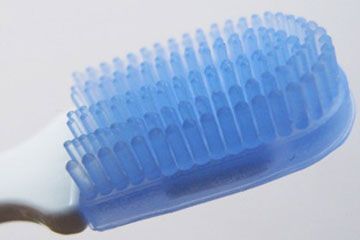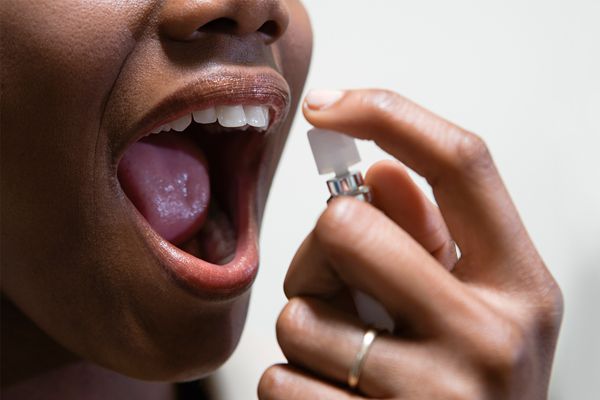You may have read the title of this article and thought, "Odor coming from your gums? Isn't it all just bad breath?" Although we tend to lump any unpleasant odors emanating from our mouths under the umbrella of "bad breath," there are actually different causes and sources of mouth odors. Of course, getting rid of bad breath can be as simple as popping a mint (garlic lovers know what we're talking about). But if you have chronic bad breath, there could be something more serious going on. Pinpointing the source of the odor in your mouth puts you one step closer to eliminating it. If your gums are the culprits, a mint won't help -- it's just temporarily covering up the problem.
Gum odor has two main sources: trapped food and periodontal disease. Often, the smell comes from bacteria that live in your mouth, or rather, their gaseous waste products (these can include sulfur, which gives off a distinctive rotten-egg aroma). Bacteria thrive in anaerobic, or low-oxygen, environments, and your mouth fits the bill. They especially like to congregate below your gum line, between your teeth and in pockets created by loose teeth, dental work or other dental problems. Their food sources -- including protein found in our saliva or in food remnants -- can be located there in abundance.
Advertisement
While the idea of trapped food seems self-explanatory, periodontal disease, aka gum disease, warrants more explanation. It's a progressive, inflammatory disease of the gums and other tissues that surround and support the teeth. In severe cases, it can lead to tissue destruction and bone loss. Next, find out what you can do to eliminate gum odor (and its causes) for good.


